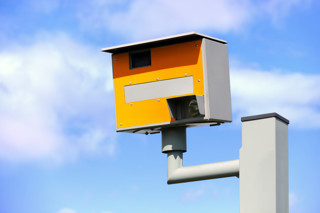The number of speeding tickets issued to UK motorists have reached a record level, exceeding 2.1 million in 2018.
Figures released by the Home Office reveal that 85% of all motoring offences reported last year were for speeding (2,105,409), which was up by one percentage point on 2017.
The year-on-year statistics show that speed limit offences have continued to increase since 2011.
Edmund King, president at the AA, said: “Speed kills, so drivers should remember that lower limits on residential roads and are there for a very important reason.
“The next Prime Minister can become a champion of road safety, by reversing the cut to cops in cars who not only act as a deterrent, but also catch and penalise those with a heavy right foot.”
The latest data on the UK’s fixed penalty notice (FPN) statistics cover offences such as speeding and others such as using a handheld mobile device whilst driving.
Punishments can include fines, speed awareness courses and court action.
Of all the speeding tickets issued, 97% were captured by speed cameras.
The rise in such FPNs has led to some calling for increased speeding limits, but RAC head of roads policy, Nicholas Lyes, earlier this year, said: “Given that inappropriate speed is still a major factor in collisions, it's unlikely many motorways in the UK are suited to an 80mph limit.
“We know a large proportion of drivers already regularly exceed the 70mph limit so there is a danger increasing it would send out the wrong message.”
Despite the FPNs rising for speeding offences, there has been a decrease for mobile phone usage.
In 2018, 38,600 FPNs were issued to those who offended, which is a drastic reduction on the 53,000 issued during 2017.
King, however, believes the reduction is not a result of drivers following rules and regulations, but a sign that a lack of police presence is to blame.
He continued “We must not be complacent as often drivers are still spotted using phones at the wheel.
"Only a fifth of drivers say there is a visible police presence on their local roads, so a more prominent presence would help to deter the use of hand-held mobiles and texting at the wheel."
Data was provided from the recent Home Office ‘Police powers and procedures’ report.





















Robin Watson - 02/11/2019 00:50
With the amount of road works and accidents on our roads, the need to speed to catch up a working schedule is obvious. In addition councils traffic planners need to do a time and motion study due to inept signally at cross roads. Our local town (Preston) has lights on a timer and not based on volume of traffic. In other words 30 or forty vehicles queue up on a red light while three other roads will get the green signal first irrespective of there being no traffic. In some cases only three or four cars get through so the rest of us have to potentially break the law to meet our deadlines. I do not believe the councils' planners are bothered as they are likely to be uninterested in life outside the council and quite happy to sit in long queues boring themselves to death counting how many foreign built cars are on the road or something equally boring.